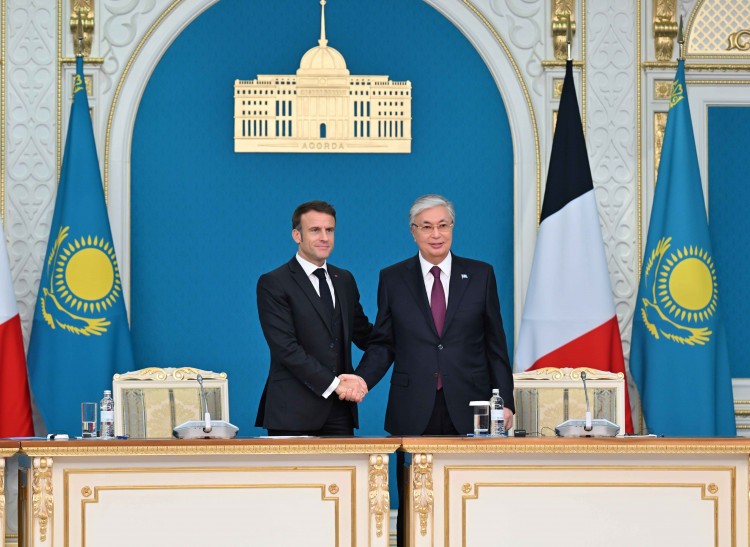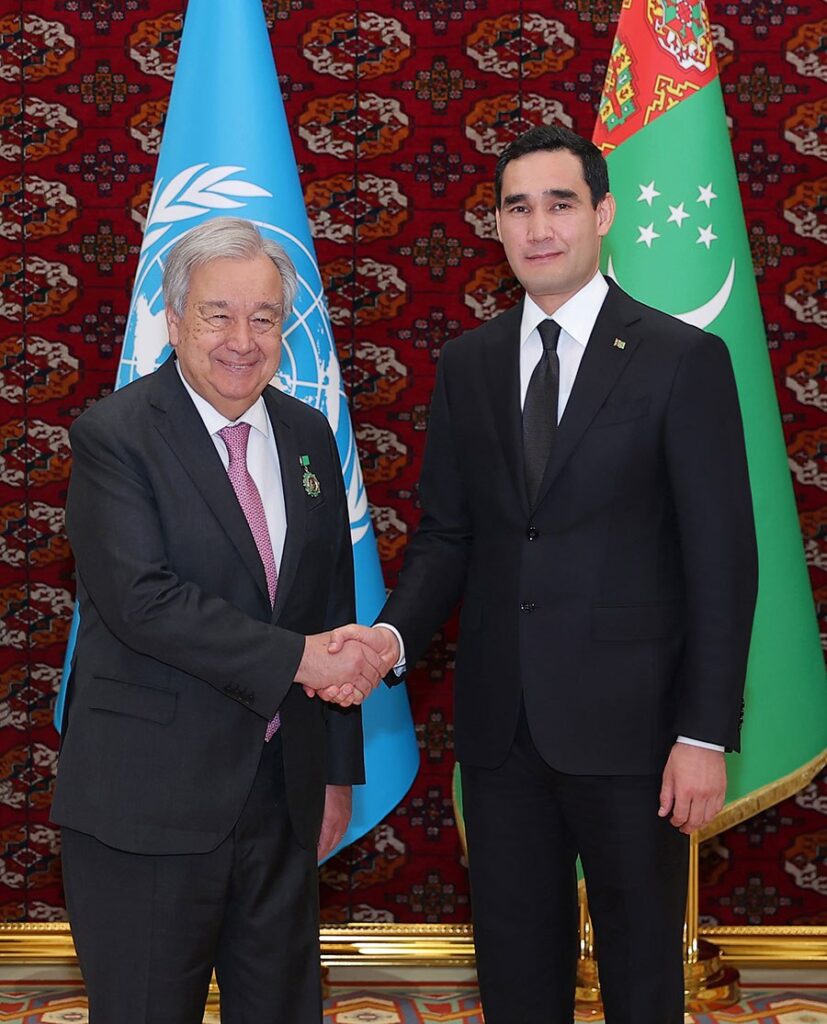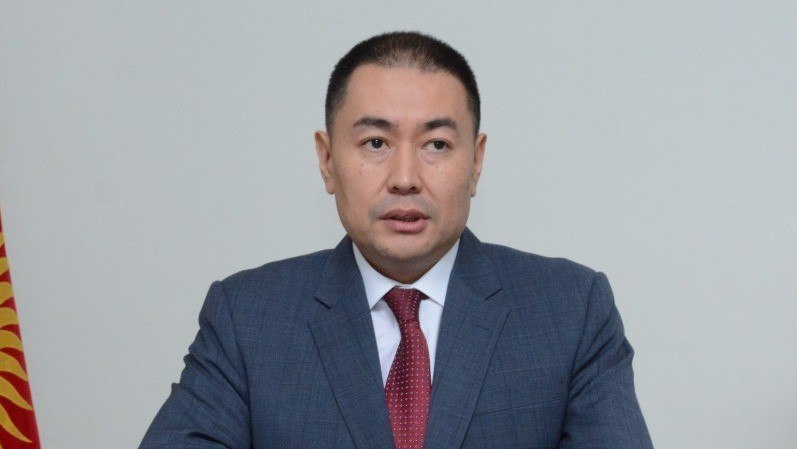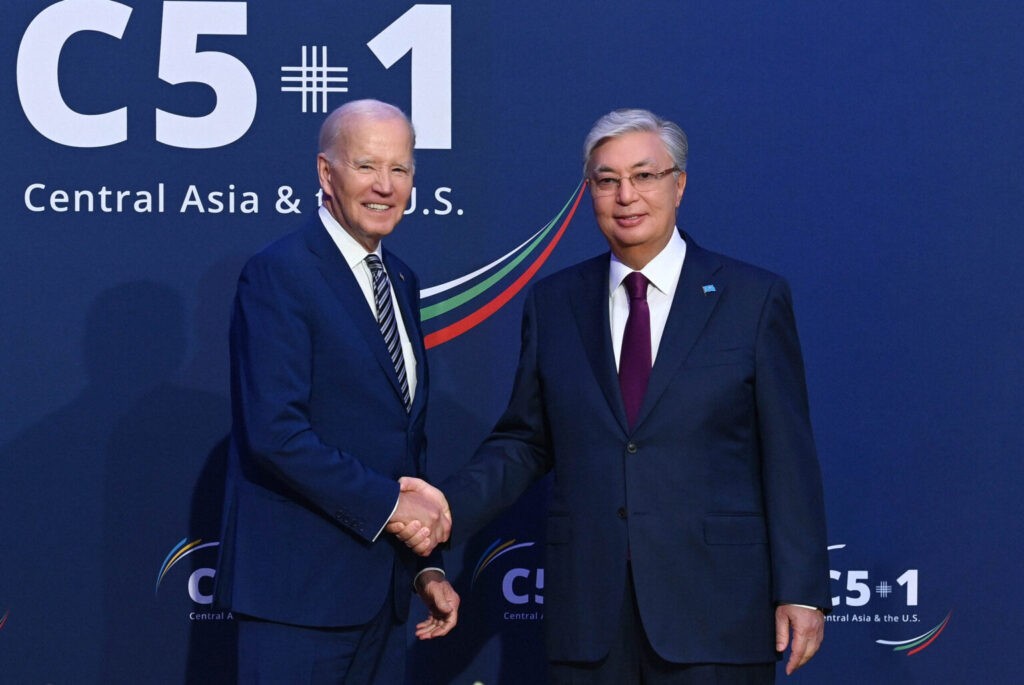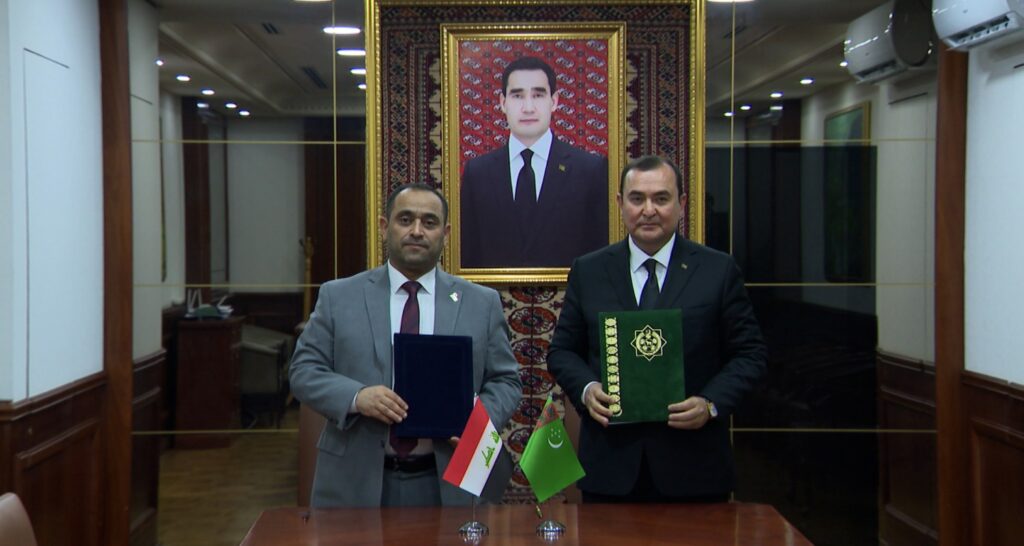In the first half of November, Kazakhstan’s President Kassym-Jomart Tokayev received a series of global leaders who came to Kazakhstan for high-level meetings. French President Emmanuel Macron arrived at the beginning of the month for two days of intensive talks prior to signing significant agreements. Immediately after, the heads of state of the members of the Organisation of Turkic States attended the organisation’s tenth anniversary summit meeting in Astana, hosted by President Kassym-Jomart Tokayev. A few days later, Russia’s President Vladimir Putin, accompanied by his foreign minister Sergey Lavrov, came to Kazakhstan for wide-ranging bilateral consultations.
This busy itinerary reinforces Kazakhstan’s role a pivotal player in global geopolitics. The country’s diplomatic activity in recent years has become key to maintaining a delicate balance within Central Asia. Kazakhstan has also played a lodestar role in guiding the region on how to balance the increasingly fractured international system, reflecting both the country’s geopolitical realities and its greater ambitions on the international stage. In this environment, Kazakhstan’s President Tokayev has skilfully navigated relationships with regional players and global powerhouses.
Macron’s first stop in Central Asia
French President Macron’s visit to Kazakhstan in early November was the first stop in his strategic tour of Central Asia. During his meeting with President Tokayev, Macron signed several important agreements concerning crucial sectors for future development and bilateral co-operation, including critical minerals, energy, pharmaceuticals and aerospace. These agreements signify France’s realisation that, amidst Russia and China’s increasing influence in this region, France must strengthen its own relations with Central Asian countries.
The agreements signed are not only economically substantial but also strategically astute. France is the fifth-biggest foreign investor in Kazakhstan, with existing ties in the energy and uranium mining sectors. France’s energy giant TotalEnergies has been long involved in the offshore Kashagan oilfield, while French company Orano, whose leader was included in Macron’s delegation, runs a uranium mine in Kazakhstan. French energy company EDF is in contention for a contract to build Kazakhstan’s first nuclear power station. All these projects underscore France’s strategic interest in its long-standing partnership with the country.
As such, President Macron’s visit is not merely a diplomatic courtesy but a demonstration of France’s recognition of Kazakhstan’s growing importance in international affairs. It also signifies a global shift of geopolitical focus towards Central Asia, where Kazakhstan stands as the leading country. Bilateral relations between the two countries are poised to develop robustly, exerting a significant influence on the region’s economic and political dynamics.
President Tokayev hosted a successful OTS summit
The tenth anniversary summit of the Organisation of Turkic States (OTS) in Astana was an important moment in the history of Turkic co-operation. President Tokayev as the host (and representing Kazakhstan as a key OTS member) played a central role in shaping the summit’s agenda and objectives. Two principal concerns of the gathering were to boost economic co-operation and diversify transport corridors. This emphasis aligns with the OTS members’ economic development strategies to increase exports. Special attention was given to ways to support small and medium-sized businesses.
As the commitment to this focus demonstrates, member countries recognize their shared heritage and the potential of their combined economic power. The summit provides an invaluable opportunity for them to explore new avenues of co-operation, align their strategic interests and address common challenges. The cultural and linguistic commonalities among the OTS members facilitate a deeper understanding and a more cohesive approach to regional and global issues, making this platform uniquely effective.
Kazakhstan’s role and objectives within the OTS are noteworthy, including its drive to enhance partnerships for economic and diplomatic dialogue with its fellow Turkic countries. This strategic focus aligns with the country’s broader foreign policy goals. Kazakhstan, as host of the summit, has emerged as a leader in Central Asia’s regional integration efforts.
In addition to Kazakhstan, OTS members Azerbaijan and Turkey have also emphasised the diversification of transport corridors. This recognizes not only the need to improve transit infrastructures, but also the fact that the corridors themselves will have knock-on effects to boost economic development.
Vladimir Putin visits Astana
The subsequent visit by Russian President Putin, accompanied by Foreign Minister Lavrov, focused on strategic issues in the agricultural and logistical sectors, underscoring Kazakhstan’s increasing role in Russian foreign trade. In addition, Tokayev and Putin discussed energy co-operation and future projects, including the possible construction of new pipelines and power plants in Kazakhstan.
The discussions also focussed on fertiliser sale and transport. While openly stressing its commitment to international rules and norms with regard to restrictions on certain countries and commodities, Kazakhstan is also creating conditions to become a logistics hub for Russian commodities destined for China, India, Iran and other countries in Asia. The country already operates a key railroad link between Russia and China, and it maintains a railroad connection with Iran along the Caspian Sea.
There is no question that, under President Tokayev’s leadership, Eurasian trade dynamics will make Kazakhstan a key logistical player facilitating transit of essential commodities like wheat and fertilisers to large markets in Asia. Here again, Kazakhstan’s central position in Central Asia sets the stage for it to benefit from the extension of transit corridors and the reconfiguration of regional and global supply chains.
President Tokayev’s diplomatic balancing act in the stand-off between Russia and the West has emerged as a key aspect of his foreign policy. Kazakhstan’s international norms-based nonalignment, together with its strategic location, enables it to engage with major powers on different fronts. As a key player in the region, the country has been purchasing large quantities of Russian natural gas (which Europe has largely stopped buying) for domestic consumption, allowing it to increase its own gas exports to China.
Conclusion
President Tokayev’s ability to host leaders from countries with contrasting global agendas, from Russian President Vladimir Putin to French President Emmanuel Macron, illustrates his unique approach. His diplomatic strategy has redefined Kazakhstan’s role in Central Asia and beyond. Under his leadership, the country has skillfully positioned itself as a key diplomatic player, able to navigate the complex webs of regional and global geopolitics.
These substantive meetings also catalyse economic, cultural and strategic partnerships that bolster Kazakhstan’s position as a central hub in Eurasian affairs. Other nations of similar stature have much to learn from Kazakhstan’s example. President Tokayev has demonstrated how to leverage – ethically, pragmatically and with foresight – a geopolitical situation to maximise a country’s global impact and regional significance.
